Dermatologists Share 3 Makeup Products To Avoid Over 40 For Healthier Mature Skin
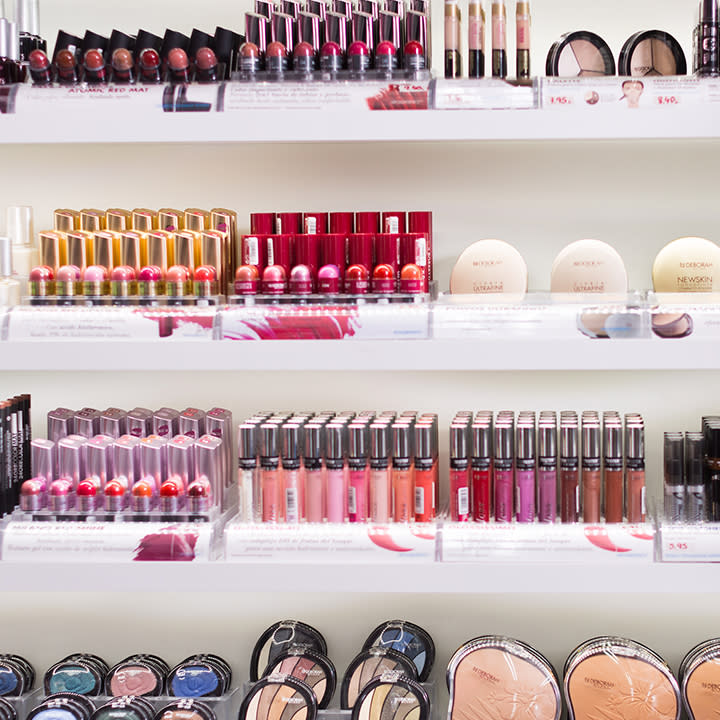
This article has been updated since its initial publish date to include more expert insight.
Aging gracefully is possible with a balanced diet, ample hydration, a consistent sleep schedule, regular exercise, and of course, using dermatologist-approved makeup and skincare products. With that said, some products can do more harm for aging skin than good, and we checked in with board-certified dermatologists and skincare experts to learn more about which ones to avoid for a healthier complexion.
Read on for tips, suggestions and insight from Dr. Anna Chacon, MD, board-certified dermatologist and author at My Psoriasis Team, Dr. Nadir Qazi, DO, board-certified physician, cosmetic dermatology surgeon, and owner of Qazi Cosmetic Clinic, and Dr. Erum N. Ilyas, MD, MBE, FAAD, board-certified dermatologist at Schweiger Dermatology and founder and CEO of AmberNoon.
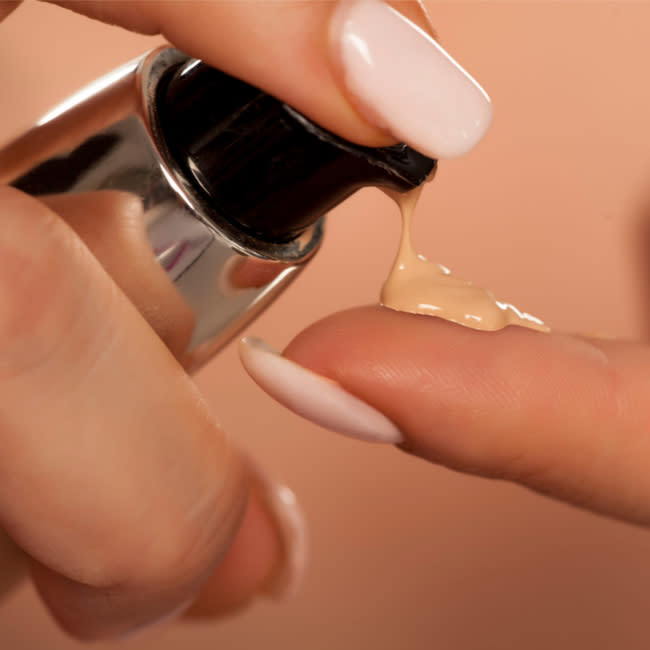
1. Vitamin E-infused Products
Whether it's foundation, concealer, or even a serum, it's best to avoid vitamin E in your makeup products, especially if you have oily skin, Qazi explains.
If you frequently experience adult acne, this is all the more reason to steer clear of this ingredient. "It is an oil-soluble antioxidant ingredient in many skincare products because of the positive effects it has been thought to have on the skin, especially regarding sun damage and hyperpigmentation like freckles," he says.
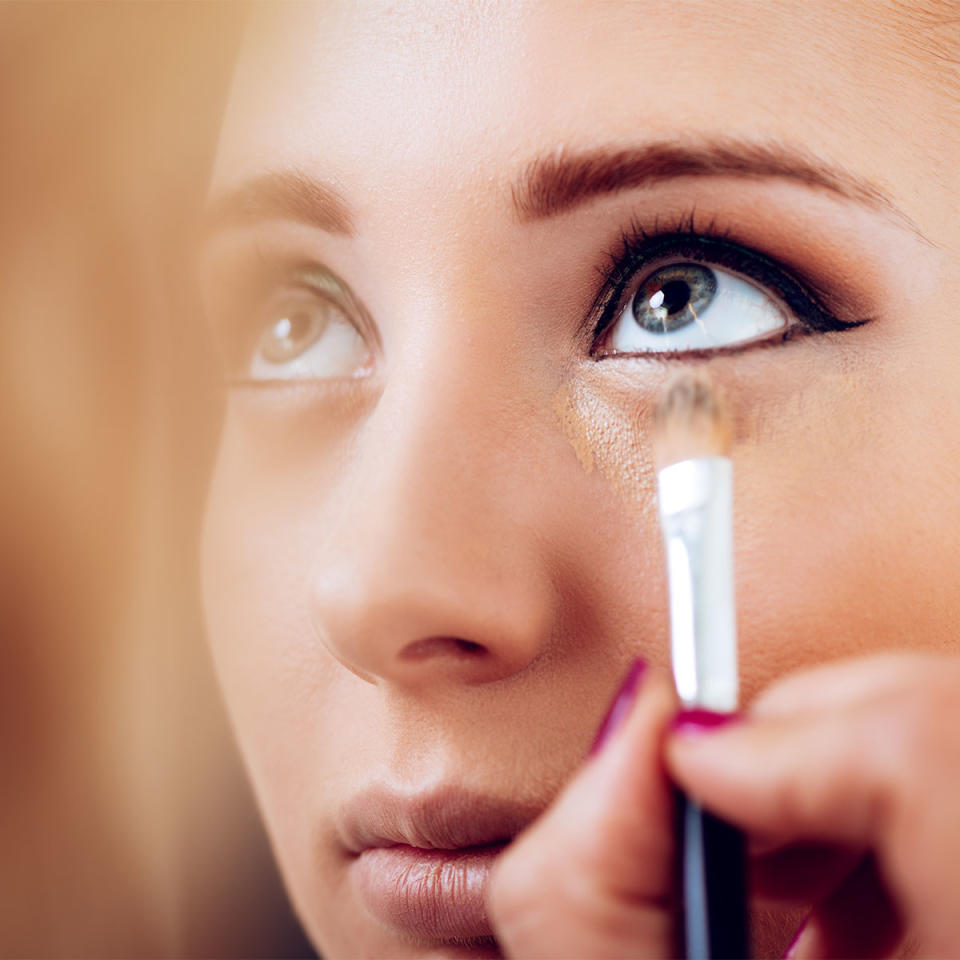
Vitamin E, often listed as tocopherol, is a "comedogenic ingredient that can clog your pores and even increase your skin's natural sebum production," he stresses. "Sebum is the waxy oily substance that our body makes to protect our skin, and when it gets out of hand, you are left with oily or greasy-looking skin."
Instead, Qazi recommends that anyone over 40 should "look for a vitamin C serum with antioxidant properties like vitamin E without the pore-clogging effects."
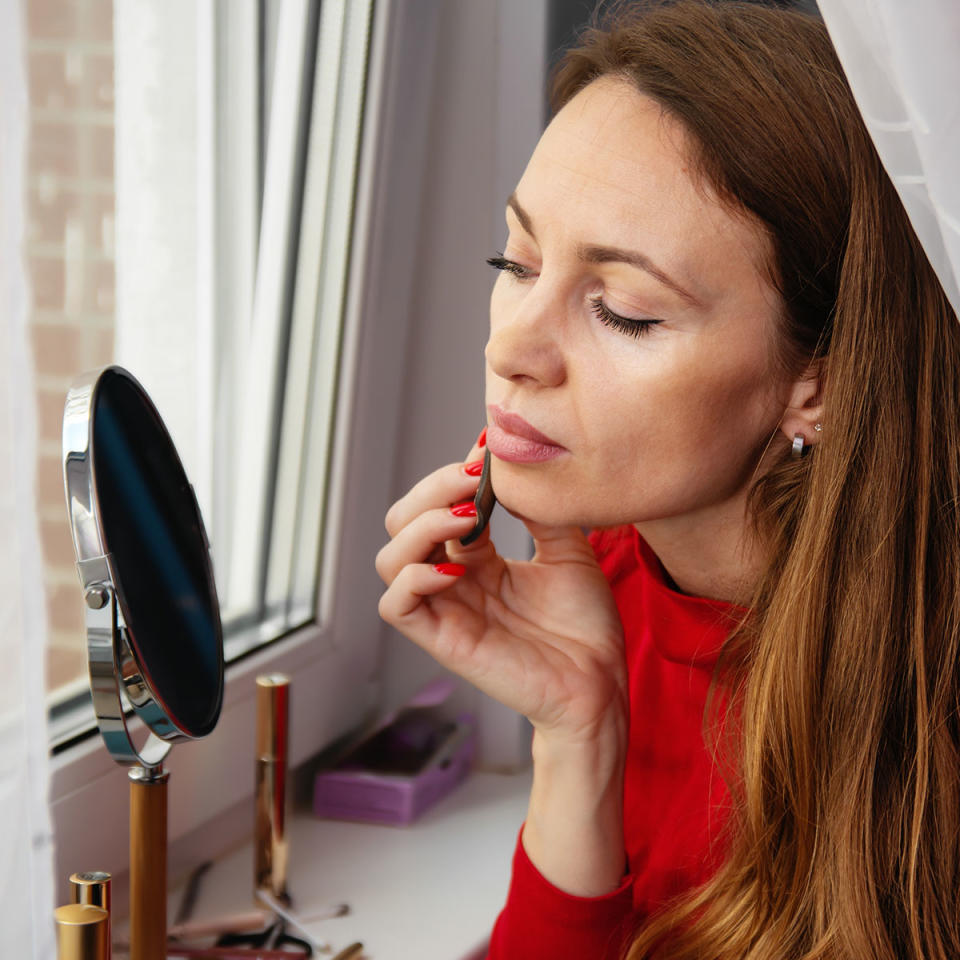
Because of those properties, vitamin C serums are great for people trying to repair damage from ultraviolet radiation. "Vitamin C is also a natural anti-inflammatory that can help any already existing acne heal," he says.
"Specifically, for those with oily skin, vitamin C also helps to balance sebum production." If you have your vitamin C covered, another good alternative to vitamin E is niacinamide.
"Niacinamide is a form of vitamin B3. When it is in a serum, it can reduce sebum production and balance out your oily skin," he suggests.
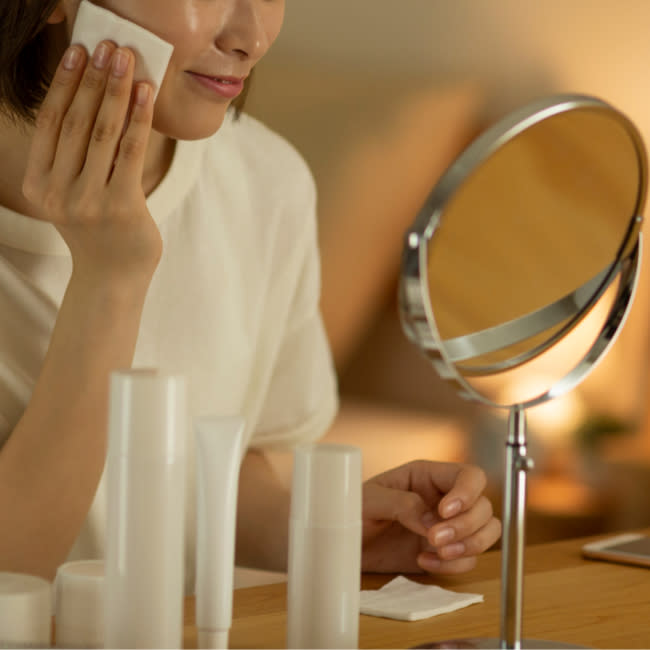
Makeup Remover Wipes
When taking your makeup off at the end of a long day, there's no denying how convenient a makeup wipe can be. Chacon advises to avoid these over 40, however, as your skin is much more delicate and harsh wiping can cause more damage than you might realize. "I’d recommend avoiding makeup removing wipes for skincare over 40 due to the harshness of the alcohol contents in the wipes," she explains.
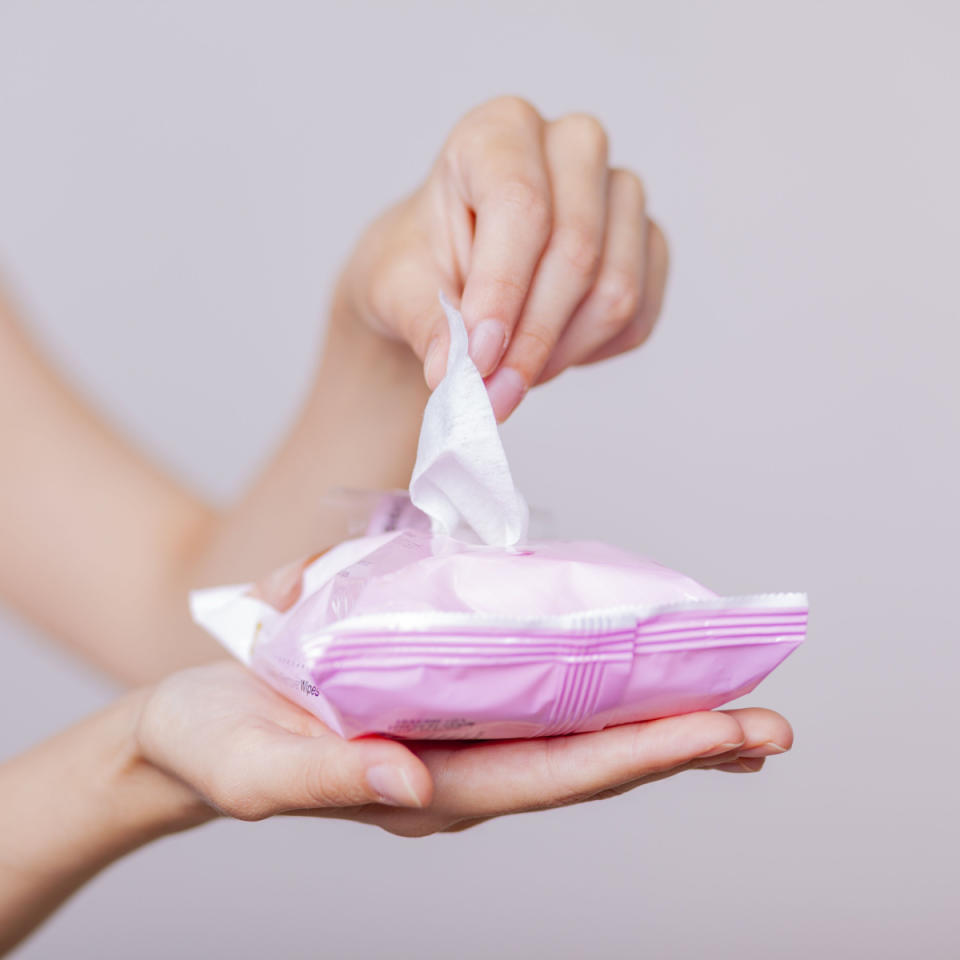
While alcohol (a common ingredient in these wipes) makes for a great anti-bacterial agent, Chacon says it can also "lead to stripping of the natural essential oils" needed for healthy skin and complexion.
The "dryness and irritation" after using these often can "perpetuate and accentuate the appearance of fine lines and wrinkles," she adds, and this can ultimately "give the skin a lack-luster appearance."
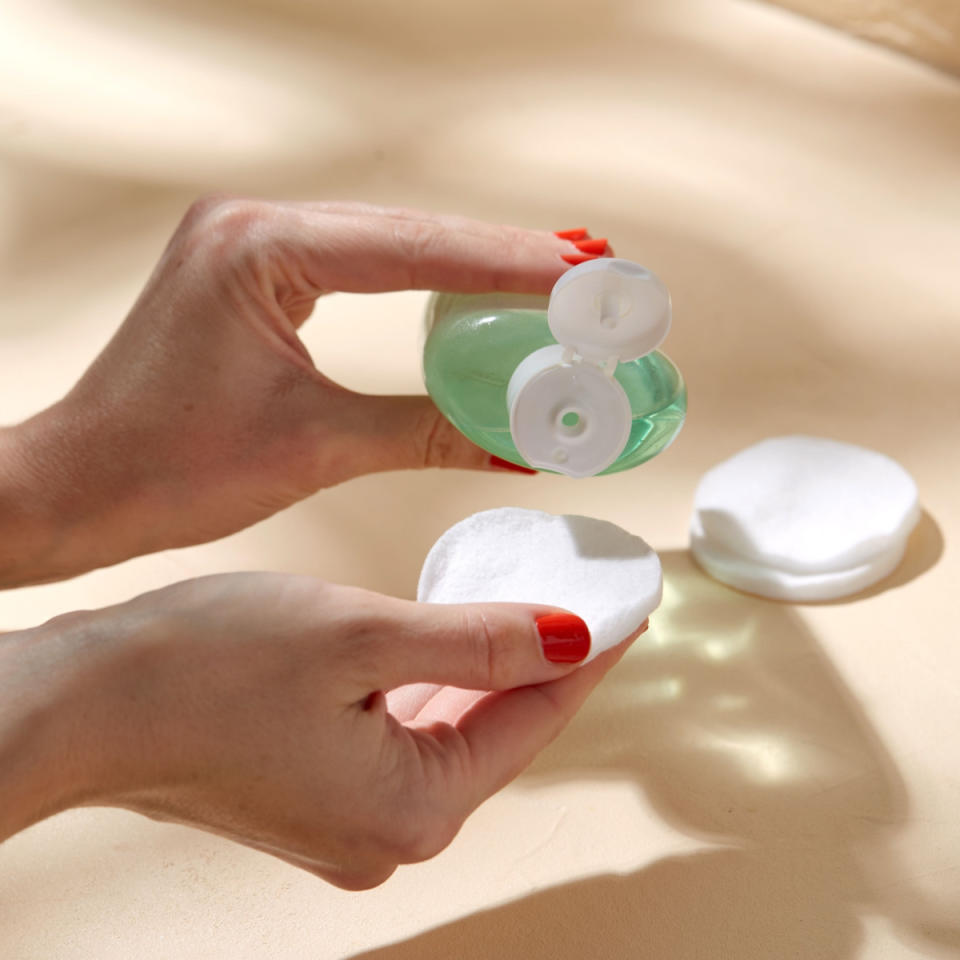
Instead, Chacon suggests opting for cotton balls, pads or a soft face towel and a mild face wash. "It may take more than one wash to get the cotton ball without signs of makeup, but I know that I’ve been gentle on my skin," she says of the method.
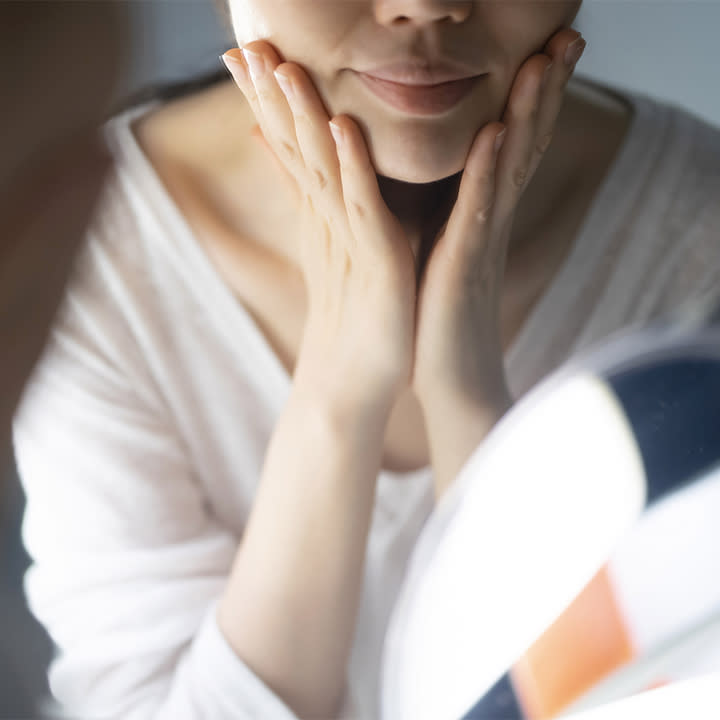
"There’s a reason why a lot of people care for a baby’s delicate skin with cotton balls or a soft towel." Chacon says that she does "prefer cotton balls or pads over a towel" with your face wash, as they are single-use, which "decreases the chance of build-up of makeup and bacteria in subsequent washes."
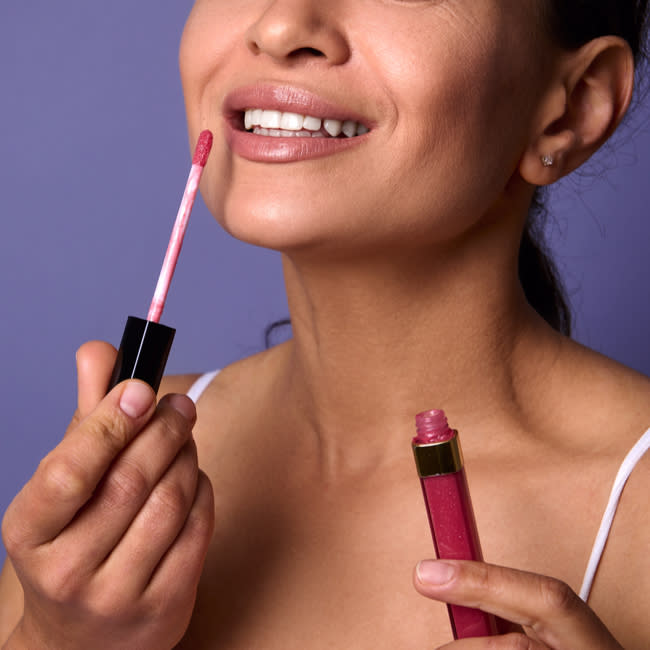
3. Ultra-Glossy Lip Products or Lipstick
Glossy lip products may provide a temporarily glamorous look, but Ilyas advises against using them often over 40 as they have the potential to harm the delicate skin on your lips over time.
"Products to be cautious of are heavy gloss lipsticks, I find that the delicate skin of the lips starts to thin as we get older, contributing to natural folds along the lip margin," she explains,
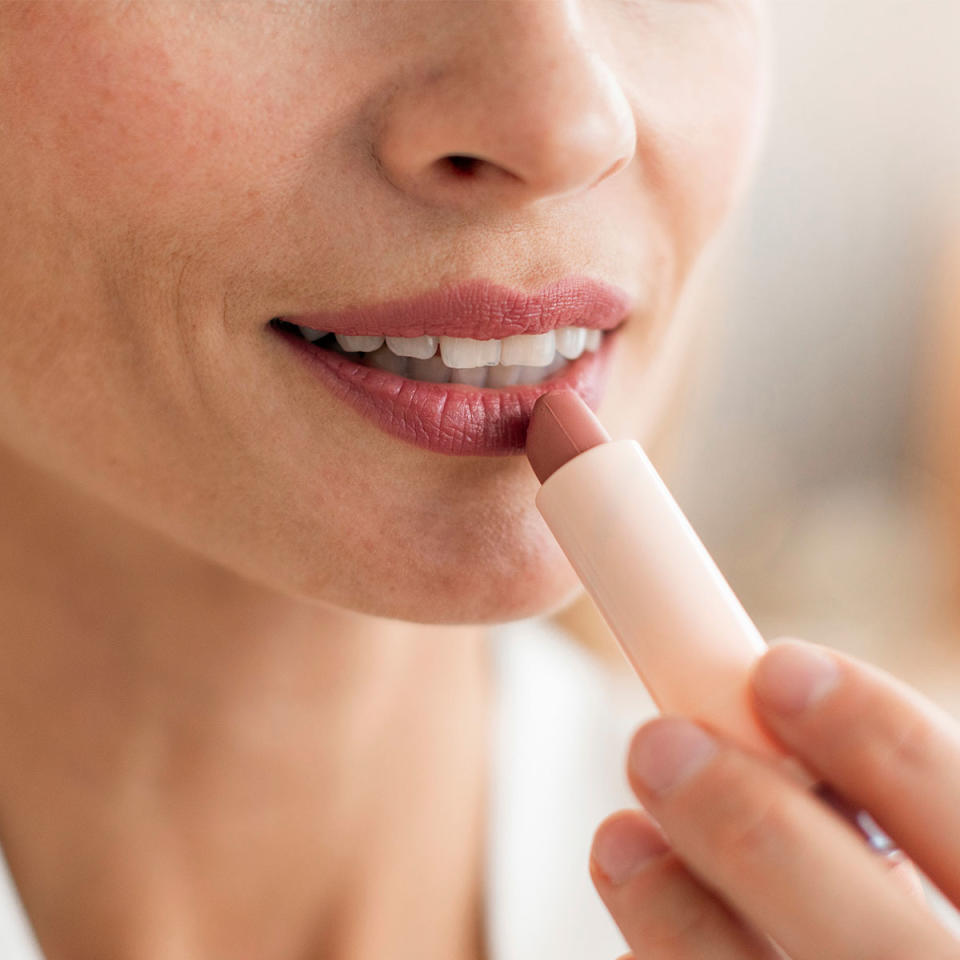
"Thick glossy lipsticks have the potential to contribute to clogged pores along the lip margin." Ilyas notes that she "routinely extracts cysts and milia from the lip margin" in her patients over 40, "to the point that I have a pocket full of lancets ready on a daily basis as I can expect at least a few a day," she warns. (Good to know!)
Ultimatley, she suggests choosing a moisturizing or hydrating lipstick that can give you a glowy look without dehydrating your skin.

